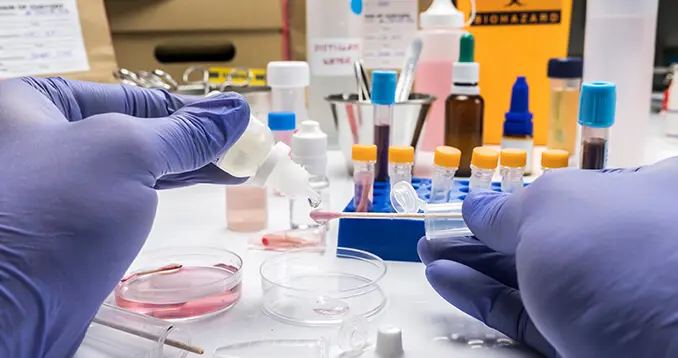Drug overdose can lead to many serious medical complications as drug toxicity has a harmful effect on the body. If enough of a drug is consumed in a short period of time, drug overdose can be life-threatening. The severity of an overdose usually depends on several different factors, including:
- The amount of the drug taken
- The potency and purity of drug taken
- Method of administration (smoking, injecting, snorting, etc.)
- Age, weight, BMI, and metabolism
- Tolerance to a drug taken
- Underlying health conditions
Regardless of the type of drug taken, any type of drug overdose can be fatal. As a result, it is imperative to dial 911 anytime an overdose is suspected – even if the person is still breathing. The sooner an overdose is treated, the higher the person’s chances of survival are.
Factors That Increase The Risk of Overdose
Not everyone who uses drugs will overdose. In fact, some people use drugs for years without ever overdosing, while others overdose the first time they get high. This is because there are many risk factors that increase the likelihood of an overdose. These include:
- History of drug abuse and addiction – People who abuse addictive drugs on a regular basis are at an increased risk of overdose.
- Habitual IV drug use – An overdose can occur from snorting, smoking, swallowing, or injecting drugs. However, people who use drugs intravenously may be more prone to overdose and other severe side effects because injection makes the substance reach the bloodstream instantly.
- History of mental illness – Mental health disorders can increase the risk of drug abuse and addiction. They can also trigger suicidal thoughts which can encourage intentional overdose.
- Improper prescription drug storage – Prescription medications that are improperly stored can easily fall into the hands of teenagers and young children who may abuse these medications and accidentally overdose.
- Not following instructions on prescriptions – Prescription medications may be safe if taken correctly, however, some people fail to read the label or take their medications in other ways than they are prescribed. Doing so increases the risk of overdose.
- Polydrug use – Mixing different substances together can lead to enhanced effects. However, it can also put the body into overdrive and increase the risk of overdose.
Types of Drug Overdose, Symptoms, and Treatment
The symptoms of drug overdose and treatment to manage or reverse it vary greatly depending on which substance was taken. Let’s take a look at the most common types of drug overdoses, what symptoms people should watch out for, and what treatment involves. One common feature among all types of drug overdoses is they require emergency medical care. Without treatment, any drug overdose can be deadly.
COCAINE OVERDOSE
Cocaine is one of the most potent illicit drugs in the world. It is a stimulant drug that is snorted, taken orally, or injected into the body. It is also smoked in some cases. More than 5000 people in the United States die annually from a cocaine overdose. Symptoms of cocaine overdose include:
- Sweating
- Increased body temperature
- Increased heart rate
- Difficulty breathing
- Chest pain
- Nausea and vomiting
- Confusion
- Seizures
- Tremors
- Anxiety
- Agitation
- Teeth grinding
- Panic
- Paranoia
- Hallucinations
- Delirium
Cocaine overdose can be reversed with proper treatment. Until medics arrive, ice or wet towels can be used to try and cool the patient’s body. Then, when treatment arrives, they may administer benzodiazepines and other cardiovascular medications to reduce blood pressure and prevent heart attack or stroke.
HEROIN OVERDOSE
Heroin is derived from the poppy plant and is purchased from the streets. It is mostly injected in the body and directly enters the bloodstream. Heroin can cause liver failure and respiratory infections. The overdoses from this drug can be deadly. Symptoms of heroin overdose include:
- Slow or shallow breathing
- Difficult breathing
- Dry mouth
- Small pupils
- Discolored lips and tongue
- Low blood pressure
- Weak pulse
- Bluish colored lips and nails
- Drowsiness
- Disorientation
- Delirium
- Coma
- Death
Heroin overdose can be fatal without immediate medical attention. Narcan (naloxone) is an opioid reversing antidote that may reverse heroin overdose if administered quickly.
FENTANYL OVERDOSE
Fentanyl is a type of opioid that is similar to heroin. It is considered to be 100 times stronger than morphine, 8 times stronger than heroin, and is snorted or taken orally. Even the smallest amounts of fentanyl can be deadly. Symptoms of a fentanyl overdose include:
- Slow or shallow breathing
- Difficult breathing
- Dry mouth
- Small pupils
- Discolored lips and tongue
- Low blood pressure
- Weak pulse
- Bluish colored lips and nails
- Drowsiness
- Disorientation
- Delirium
- Coma
- Death
Fentanyl, like heroin, is a potent opioid. Overdose usually requires Narcan, however, fentanyl is far more potent than heroin and can also be more deadly.
XANAX OVERDOSE
Xanax is a prescription drug that is used for recreational purposes. It is a sleeping aid and also reduces anxiety. Since it is fast-acting, overdose symptoms are visible very quickly. Symptoms of Xanax overdose include:
- Drowsiness
- Poor coordination
- Blurred vision
- Confusion
- Reduced reflexes
- Coma
- Respiratory arrest
- Death
Benzodiazepine overdoses are treated differently depending on the patient’s symptoms and tolerance. One of the most common treatments for Xanax overdose involves flumazenil, an injection that can help block the effects of benzodiazepines and reduce overdose.
ADDERALL OVERDOSE
Adderall is a prescription medicine that is used to treat ADHD and narcolepsy. However, it is increasingly being used for recreational purposes, and Adderall overdoses are on the rise. Around 30,000 people visit the ER for Adderall-related overdoses every year. Symptoms of Adderall overdose include:
- Agitation
- Hyperactivity
- Hallucinations
- Rapid heart rate
- Overactive reflexes
- Panic
- Muscle pains
- Nausea and vomiting
- Diarrhea
- Stomach cramps
- Rapid breathing
- Increased body temperature
- Tremors, seizures, or convulsions
- Dilated pupils
- Loss of consciousness
Treatment for Adderall overdose involves trying to slow down the central nervous system. This may be accomplished by intravenous fluids, heart monitoring, and medications for agitation and hypertension.


Get The Treatment You Need and Deserve
Elevate Recovery Center stands at the forefront of addiction treatment, demonstrating a track record of effectively supporting long-term recovery. Our dedicated team of renowned clinical and medical professionals excels in addressing addiction, often in conjunction with mental health concerns, to provide personalized care for each individual in our program. Call us – we’re available 24/day, 7 days/week.
Steps to Prevent Drug Overdose
There are many steps individuals can take to prevent overdose, but the most effective step is to abstain from drug use. People who struggle to stop using drugs on their own must seek an addiction treatment program. Other ways to help prevent overdose include:
- Storing prescription medications properly and out of reach of children
- Get help for mental health issues
- Take medications as they are directed by a physician
- Avoid mixing medications or mixing drugs with alcohol
- Pay attention to drug interactions
- Don’t inject or snort drugs
- Talk to a trusted friend or doctor about suicidal thoughts
In the end, getting help for drug abuse and living a sober life is the only way to completely prevent an accidental or intentional drug overdose.
Find Help for Drug Addiction Today
At Elevate Recovery Center, we know how important it is to families and communities to keep their loved ones safe. That’s why we provide integrative treatment programs that help prevent substance use, promote harm reduction, and stop the overdose crisis that is hurting Americans all over the country. To learn more about our Massachusetts drug addiction treatment program, contact one of our dedicated treatment professionals today.


